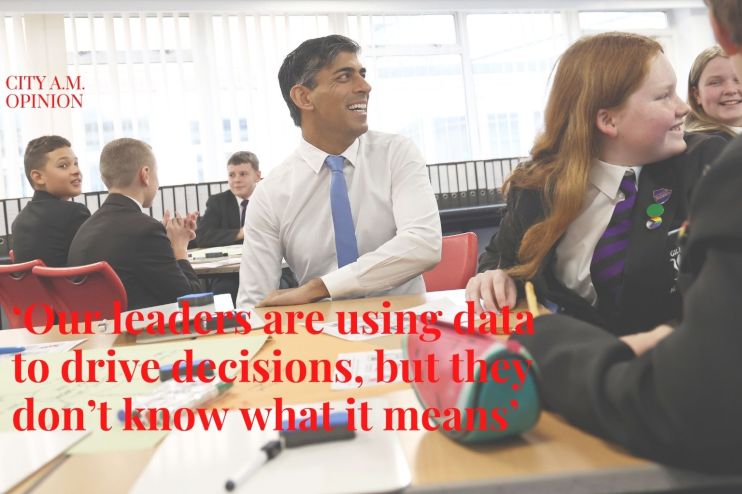We’re living in a spreadsheet-crazy world, it’s time we wised up on data

Data plays a crucial part in decision-making in the modern world, but our politician and leaders barely know how to use it, writes Will Cooling
Along with despair at the unsuitability of Boris Johnson to be Prime Minister at a moment of national crisis, a common refrain from recent witnesses to the Covid inquiry has been unhappiness at the quality of data ministers had to hand when making decisions about lockdown. More than one witness has complained that the NHS couldn’t give them something as simple as how many people were dying of coronavirus at any given point.
This I feel reflects a broader ignorance amongst politicians, and indeed other leaders, about data. In a world of spreadsheets and algorithms it’s an understandable mistake to assume that data is self-generating, but that is far from the truth. Every datapoint captured has a long chain of custody that can be surprisingly labour-intensive, both in terms of collection, but also validation and analysis.
It sounds basic, but data collection still requires people to fill out some kind of form, time that during a crisis will take them away from other urgent tasks. You can speed up the process by simplifying the form, but that risks reducing the quantity and quality of information you receive. Furthermore, if the form is simplified by using a common identifier such as a work email address or employee number, which allows for answers to be cross-referenced with information already collected elsewhere, that will increase time it takes to analyse the data because somebody will have to bring together the various data sources. And of course, the form doesn’t appear by magic, but must be written by someone.
The hope is often that automating collecting and collating data will reduce some of this work. And of course, online forms do literally remove the need for some poor administrator to transcribe survey answers. But there are downsides. Online forms nearly always take longer to complete than paper ones and lead to lower response rates; think how much more likely you are to complete a paper survey given to you before the end of a conference than one emailed to you the day after. But the bigger issue is that such automation creates the need for data validation, ensuring that responses are correctly pulled into whichever programme is being used for analysis. Getting this right requires substantial investment in data technologies.
Increasingly, the presentation of data is also being automated, as organisations partner with external software providers to build dashboards to present their data. Such visualisation tools are incredibly powerful ways to disseminate information across an organisation, but in doing so they flatten it. They work by reducing often quite complex datasets to a simplified menu of variables, with the interrelationships pre-set. They also encourage organisations to focus on the information that is already available, making for a strong but brittle approach to data analysis. It’s exactly this type of approach that can be overwhelmed in an unforeseen emergency.
Such tools are also part of a trend that confuses the presentation of data with its analysis. Increasingly, thanks in no small part to GDPR, access to raw data is tightly restricted to data management specialists, with even staff tasked with analysing the data only ever seeing a summary. This risks key trends being missed if the relevant information is not included in the summary while obvious mistakes can be missed due to the lack of wider context. It can also breed a learned helplessness amongst other professionals, for whom data becomes something that other people in the organisation do, rather than something they need to master to be effective in their job.
But above all else, ignorance of the work involved in producing and understanding data can encourage senior leaders to believe they can control more than they can. Time and time again we see ministers want detailed datasets about how decisions affect the entire nation in the belief that such information will allow them to exert greater control on local decisions by second-guessing the decisions of local councils, schools and hospitals. But that is how bad leaders use data. Number 10 descended into a state of anarchy during the pandemic because they were trying to micromanage everything, rather than trust frontline professionals to get on with the job.
Rather than allowing the distantly powerful to interfere with everyone’s operational decisions, data analysis should be used to bring the experiences and perspectives of ordinary people into strategic conversations. That’s as true of government as it is in business.
